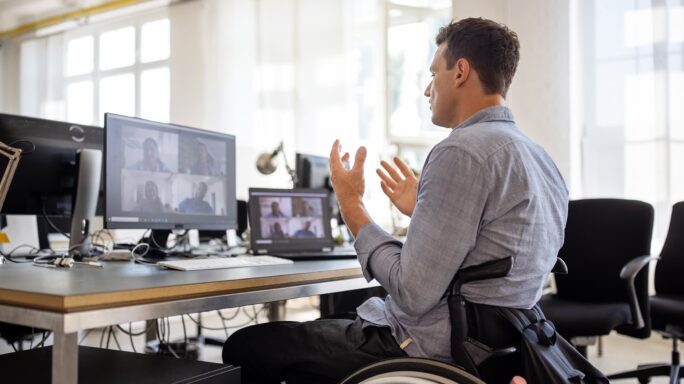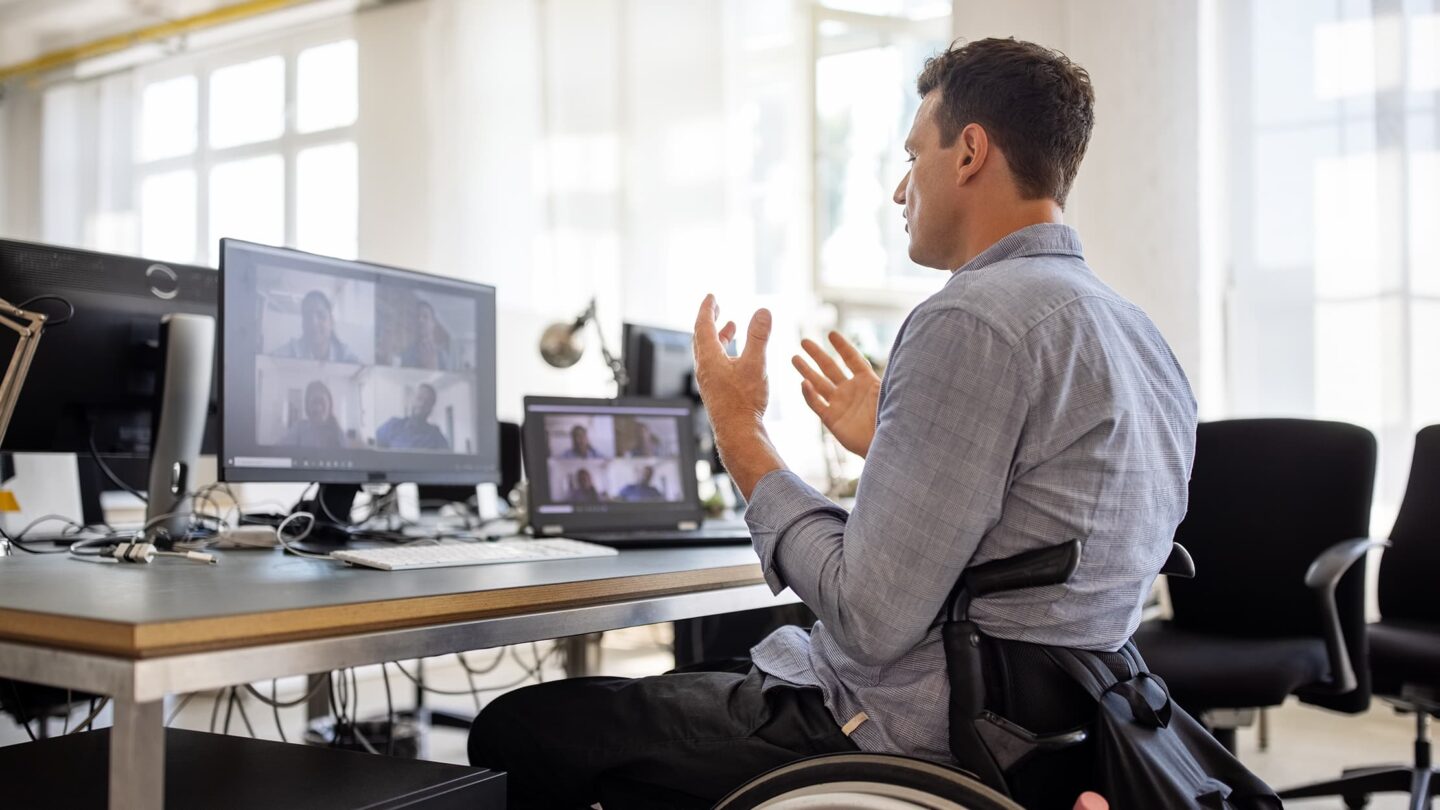Accessibility
Why building empathy is essential for accessible design

Accessibility matters to us here at Sage, and we believe empathy is crucial to making everything, from our workplace culture to our products and services, more inclusive for people with accessibility needs.
As part of our commitment, we recently introduced workshops on empathy to help our colleagues better understand the accessibility needs of real people.
In this article we talk about why these were introduced and the impact it has had for our colleagues. Our workshops form part of our pledge to create more accessible experiences for customers, colleagues, and partners.
Empathy workshops as a tool of understanding
We began running an internal workshop for our Sage colleagues called ‘Building Empathy’. This involved leading an interactive workshop with assistance from the Sage accessibility community, where we complete tasks on various websites.
However, this involves one twist – all tasks are completed using a disability simulator. This allows our colleagues to get a feel for the frustrations disabled users face daily when interacting with products, web pages, and apps. The idea was that experiencing those challenges first hand will allow our teams to think about how we could overcome these barriers to help users with accessibility needs.
By empathising with the user, we can then apply our knowledge to adapt our products and services to those needs during the design and development phases.
Introducing accessibility testing into processes
As a follow up to the sessions, colleagues are asked to continue this journey in their own time with similar experiments.
For example, we suggested that users put away their mouse and spend 30 minutes using only the keyboard to navigate their favourite blog, website, or a product they were working on.
Navigating with just a keyboard can very quickly highlight issues experienced by users who regularly use keyboard navigation as their only means of interacting with content. It is one of the most simple but effective ways to gain first-hand insight into the problems that rise when accessibility hasn’t been considered for web pages etc.
The feedback from these sessions has been positive and many colleagues have shared their thoughts on the impact it has had:
“The sessions have helped me reflect on how I work in my day-to-day. I hadn’t realised previously just how difficult to use some websites can be if you have reduced vision, mobility, perception, or don’t use a keyboard and mouse. The sessions have helped me to bear in mind these difficulties to ensure that when designing, creating, and testing new web pages to create a more accessible result.”
Paul Sumner – Senior React Developer
“The Empathy Workshops that Jonny runs are very informative and are a true reflection of what users with different disabilities need to deal with. These workshops are very insightful because they showcase the need of how important accessibility and usability is in our products. The sessions help increase awareness and helps to change the mindset of the attendees (developers, QA’s, architects, and designers) to consider a wider audience when they carry out their roles. In turn, this knowledge will only benefit our products, our user base and our reputation as a company that genuinely cares.”
Chris Wayman – Software Engineering Team Leader
“ I found the workshop really useful, and most definitely increased my understanding of disabilities as it was a kinaesthetic experience. This increased my empathy, and I applied my learning toward the understanding of the accessibility overhaul I am undertaking within my projects.”
Nina Spray – Associate Solutions Designer
Why accessibility matters
Legislation is one of the many reasons why accessibility should matter. At Sage we have made a commitment that all our products will be AA WCAG 2.1 compliant by 2025. It’s likely that in the future business could be fined if these guidelines are not followed.
However, we also believe it is the right thing to do. One concept, shared by the Web Accessibility Initiative, has stuck with us; web accessibility is essential for some, useful for all.
There is also a financial impact to considering the needs of disabled users. The Purple Pound – the term coined to describe the estimated spending power of disabled households in the UK – is valued to be worth £274 billion. Therefore, by potentially not making our products and services accessible, businesses are also missing out on potential revenue.
Creating a culture of accessibility at Sage
Empathy is defined as the ability to understand and share the feelings of another. By putting ourselves in the position of the user, we can connect with their perspectives much more effectively, and work to resolve their challenges.
When we witness users with disabilities trying to use a web application that hasn’t taken accessibility into consideration, it really highlights that we must do more. Assistive technology, such as screen readers, can only do so much. If we do not create a page or product as expected, then the technology cannot fix that. The user will miss out will become both frustrated and unfairly excluded from the full website experience.
Most businesses do not ignore web accessibility out of malice or laziness – it is mostly due to a lack of understanding. At Sage, we truly believe that empathy is the key to start people on the path of web accessibility. By making accessibility considerations part of our day-to-day role, we can produce experiences that are accessible to all.
Applying empathy to accessible design
The key takeaway from this article is to remember why accessibility matters. It is important that when looking at technical aspects such as code, labels, and other non-visual changes to remember users with accessible needs.
By applying empathy to our designs and builds, we remind ourselves that we are creating these for a person – not just a code change, or legislation. People are at the heart of our services and products, so their experience is what really matters.
Find out what other steps we are taking to introduce accessibility awareness across our business by visiting our accessibility hub. Here you can find further resources to introduce accessibility into everyday processes, as well as additional information on how we’re championing accessibility here at Sage.





